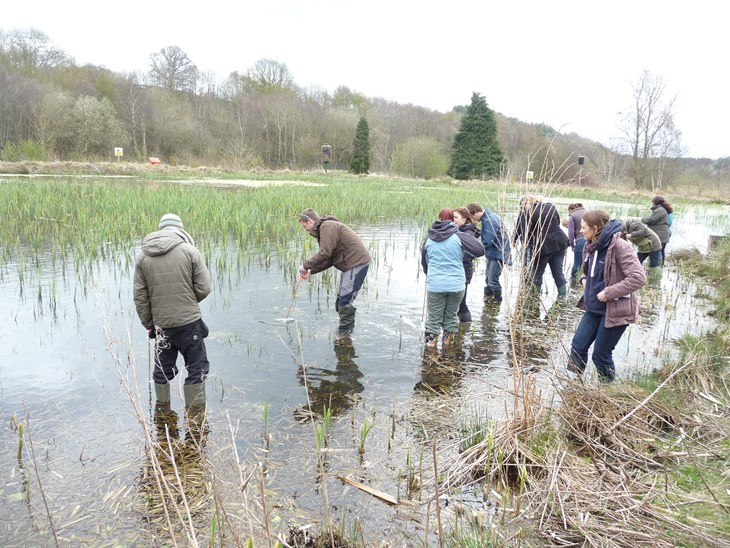The recent focus for our work at Rhydymwyn has been on the large pond, known as The Wetland.

Typha (Bulrush) species need pushing back each year to prevent them dominating the whole pond and obscuring the surveying of amphibians in the Spring.
A combination of factors, including no access to the site between April and September for Wild Ground and the exceptionally dry, hot weather during that period, have led to unusually dry conditions in the pond.
This had the advantage of allowing easy access for the management of the vegetation, where normally we would need to don waders, wellies were sufficient this year. Our volunteers weren’t able to join us for the work, so instead of pulling the Typha, we used scythes to cut it. All being well, the pond will flourish after our work.
We have planted 120 wildflower plugs in the butterfly garden and our colleagues, Friends of Rhydymwyn Valley, have managed to give the sensory garden a refresh, including trimming the new growth on the willow tunnel.
The recent focus for our work at Rhydymwyn has been on the large pond, known as The Wetland. Typha (Bulrush) species need pushing back each year to prevent them dominating the whole pond and obscuring the surveying of amphibians in the Spring.
A combination of factors, including no access to the site between April and September for Wild Ground and the exceptionally dry, hot weather during that period, have led to unusually dry conditions in the pond.
This had the advantage of allowing easy access for the management of the vegetation, where normally we would need to don waders, wellies were sufficient this year. Our volunteers weren’t able to join us for the work, so instead of pulling the Typha, we used scythes to cut it. All being well, the pond will flourish after our work.
We have planted 120 wildflower plugs in the butterfly garden and our colleagues, Friends of Rhydymwyn Valley, have managed to give the sensory garden a refresh, including trimming the new growth on the willow tunnel.
